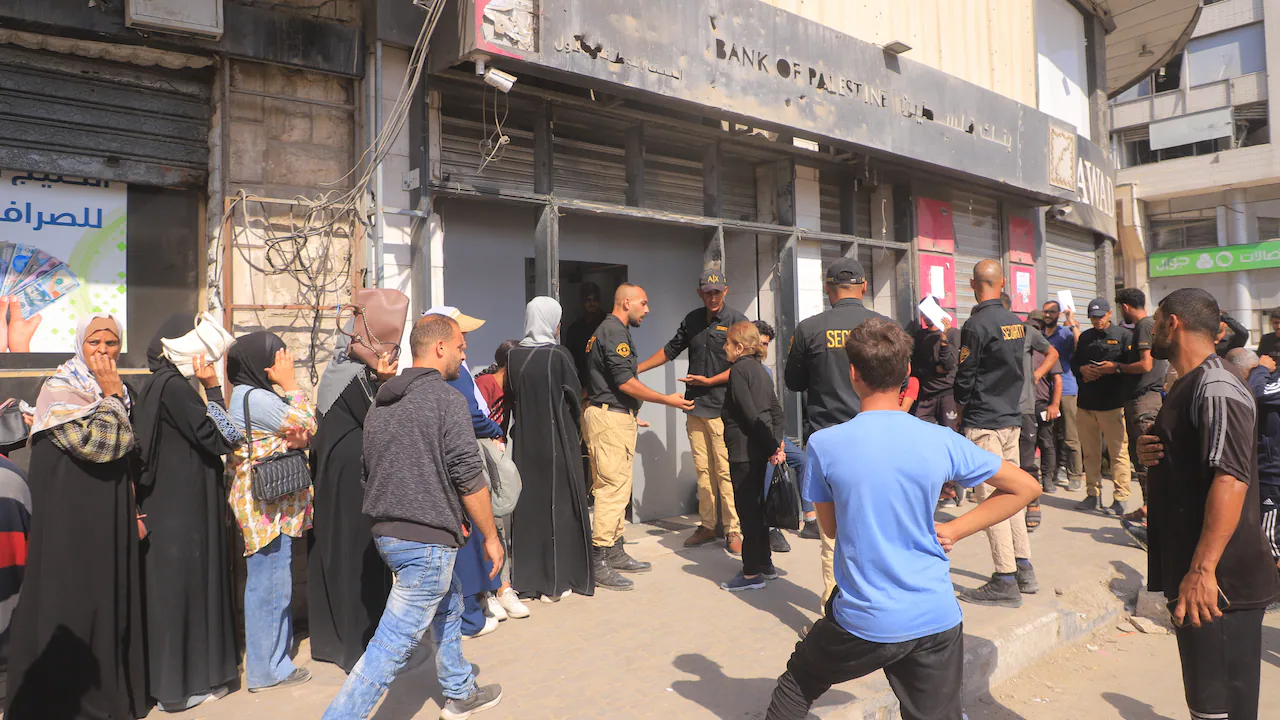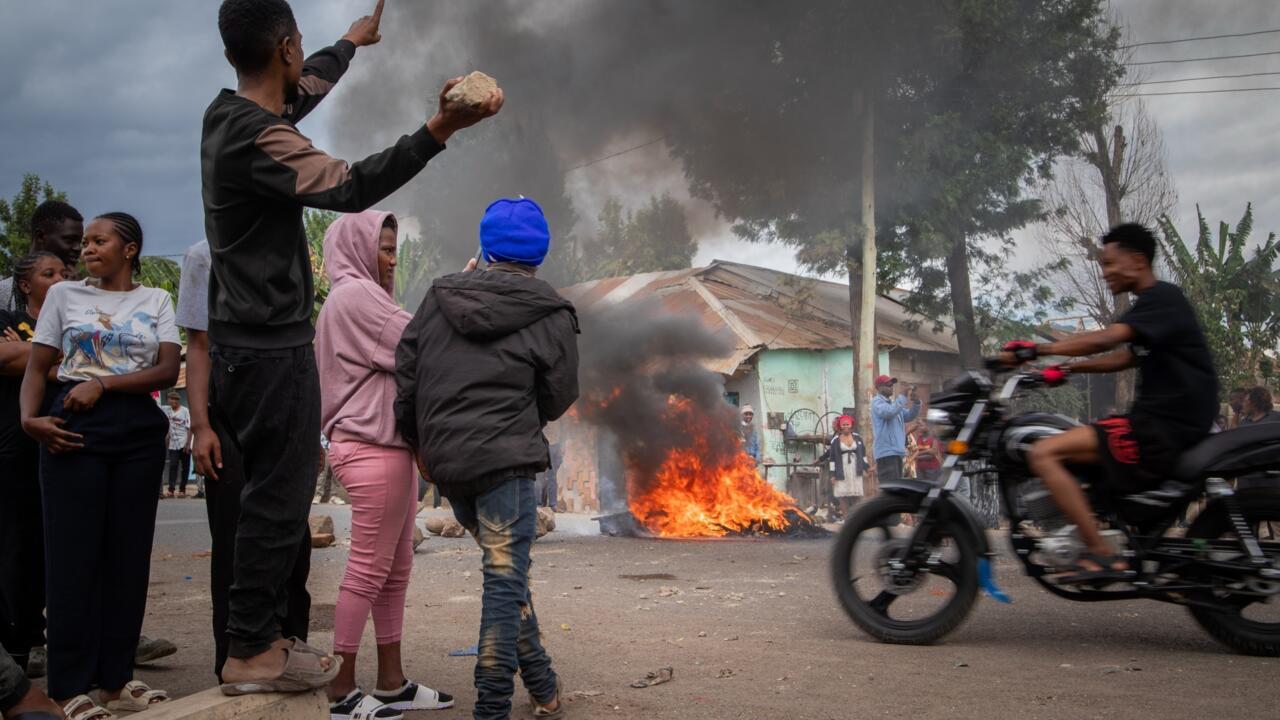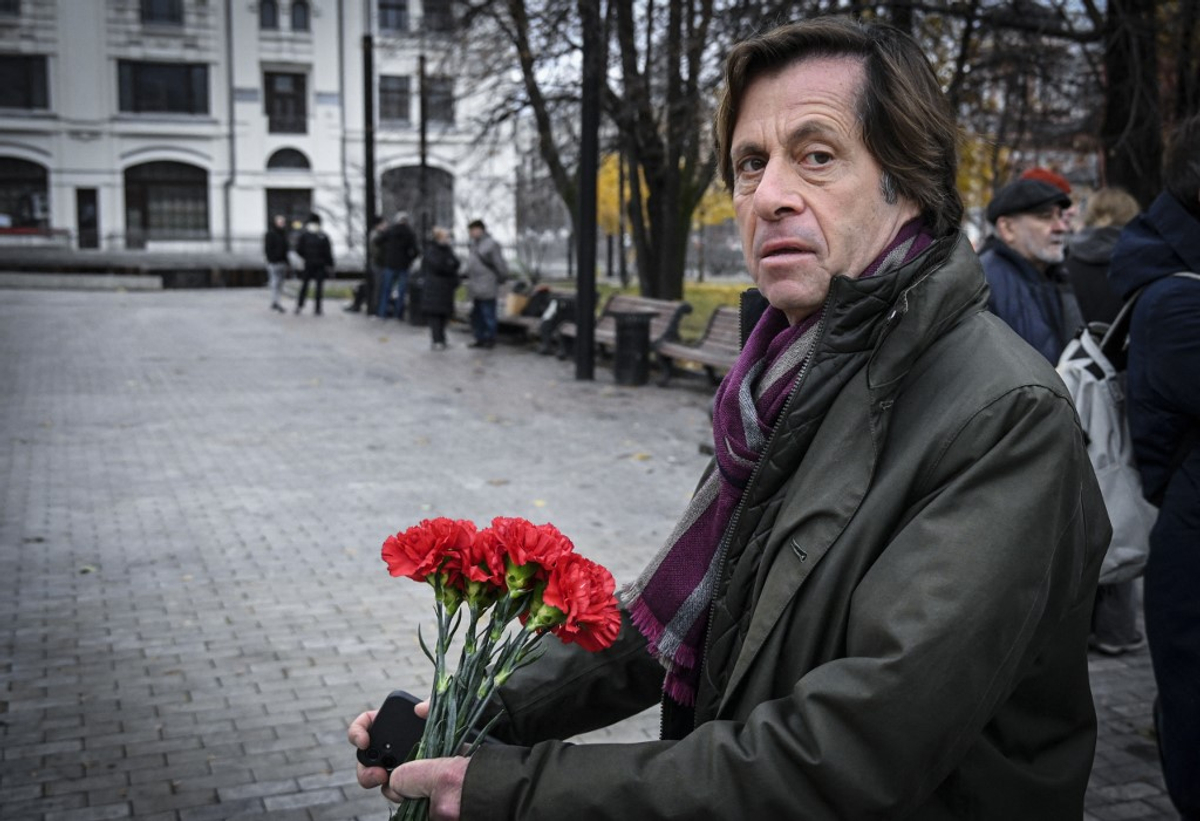Copyright cbc

Throngs of people lined up outside the Bank of Palestine branch in Gaza City, anxiously waiting to see if they would finally be able to access their funds for the first time in two years of war. Two of the bank’s branches reopened their doors in Gaza this month, after the start of the first phase of the ceasefire between Israel and Hamas. Banks in the Gaza Strip have largely been destroyed in the fighting, with just these branches, in Gaza City and in Deir Al-Balah, remaining. However, the resumption of business in banks has been limited to administrative affairs, as safes still have no cash. Ramadan Al-Jumla, 55, spent hours in line at the Gaza City branch. He made his way to the Bank of Palestine to do administrative work on his account after he got a statement on his mobile phone about his funds. He was not able to take any money out. “If the bank is open or closed, there’s no difference because there’s no money,” he told CBC freelance videographer Mohamed El Saife on Thursday. “I wish there was money.” Still, some residents celebrated the event, saying it brought hope that life could eventually return to normal. That included Khaled Shamiya, who was among those standing in line. The 54-year-old said banks are essential for the resumption of normal life. “Without banks, there is no life,” he said. “Banks are a way to find a solution in the catastrophic economic situation we’re in.” ‘Will we live under the mercy of exchangers?’ Amer Al-Sultan, 30, who was also in line for the bank on Thursday, said he wondered how long the situation would last. “Will we live under the mercy of exchangers?” he asked. “We demand that [Israel] bring money in for the banks so we can live,” he said. “We want money so we can manage our affairs.” Most bank branches in Gaza have closed down or been destroyed since Oct. 7, 2023, when a Hamas-led attack on Israel killed some 1,200 people and took some 250 hostage, per Israeli figures. Meanwhile, the last working ATM in Gaza closed in 2024, according to The Week. And while aid continues to trickle into the strip with difficulty, basic food and water have taken priority. A sort of black market has sprung up in its place — at a high cost. For much of the last two years, Palestinians looking to get cash have had to co-ordinate with exchangers, or people who have access to bills through businessmen in Gaza, and electronically transfer them funds in exchange. These exchangers would take a percentage of each transaction for their troubles. “If you want to take money out, they take half,” Al-Jumla said. Today, the exchangers are still active, said CBC’s freelance videographer Mohamed El Saife, though the transaction fees appear to have decreased. A symbol of hope for others Still, for others, the banks’ reopening was a symbol of hope for a territory that has otherwise been bombarded relentlessly. Israel’s military offensive in Gaza has so far killed more than 71,000 people, according to the Gaza Health Ministry. Ali Al-Sadeq, 39, who was at the bank on the first day it opened earlier this week, said the reopening was a “big achievement.” “We were all struggling during the entire duration of the war in regards to the cash and withdrawals,” he said. In a 2024 report, the World Bank found that 93 per cent of operational bank branches in Gaza had been destroyed in the war. In September 2025, United Nations experts warned of a “severe economic emergency” and “catastrophic harm to human rights” coming from Israel’s strikes on the Gaza Strip. The experts, a group of independent experts on foreign debt, called Israel’s grasp on Gaza a “financial stranglehold.” “Economic life in Gaza has been decimated by sheer physical destruction, blockade and siege, and repeated forced displacement,” they said. The report went on to conclude that Israel has “blocked the inflow of new currency” into Gaza. Israel has recently limited aid into the strip, claiming Hamas violated its end of the ceasefire deal in returning bodies of hostages to the state. Hamas said it needed more equipment to locate the bodies buried across the strip. Egypt provided machinery last week to help with the search. Despite the fact that the banks have yet to offer much-needed cash, Al-Sadeq said the opening was a step toward normalcy for people. “The Gaza Strip is destroyed but we have hope,” he said. “Despite all the destruction, the Bank of Palestine opened and it is an achievement.”



